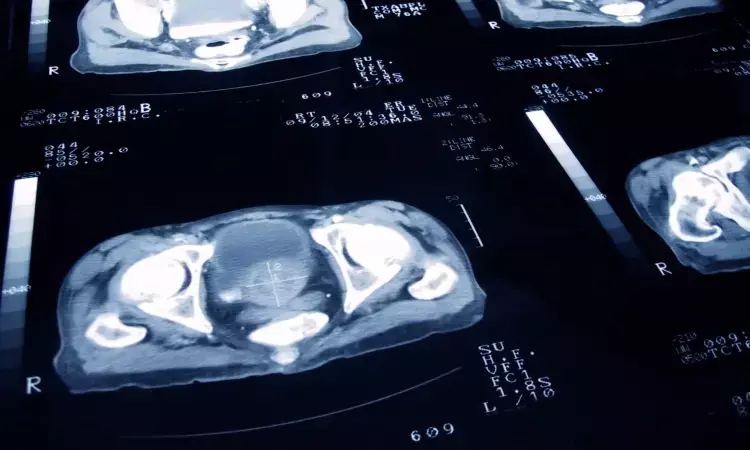- Home
- Medical news & Guidelines
- Anesthesiology
- Cardiology and CTVS
- Critical Care
- Dentistry
- Dermatology
- Diabetes and Endocrinology
- ENT
- Gastroenterology
- Medicine
- Nephrology
- Neurology
- Obstretics-Gynaecology
- Oncology
- Ophthalmology
- Orthopaedics
- Pediatrics-Neonatology
- Psychiatry
- Pulmonology
- Radiology
- Surgery
- Urology
- Laboratory Medicine
- Diet
- Nursing
- Paramedical
- Physiotherapy
- Health news
- Fact Check
- Bone Health Fact Check
- Brain Health Fact Check
- Cancer Related Fact Check
- Child Care Fact Check
- Dental and oral health fact check
- Diabetes and metabolic health fact check
- Diet and Nutrition Fact Check
- Eye and ENT Care Fact Check
- Fitness fact check
- Gut health fact check
- Heart health fact check
- Kidney health fact check
- Medical education fact check
- Men's health fact check
- Respiratory fact check
- Skin and hair care fact check
- Vaccine and Immunization fact check
- Women's health fact check
- AYUSH
- State News
- Andaman and Nicobar Islands
- Andhra Pradesh
- Arunachal Pradesh
- Assam
- Bihar
- Chandigarh
- Chattisgarh
- Dadra and Nagar Haveli
- Daman and Diu
- Delhi
- Goa
- Gujarat
- Haryana
- Himachal Pradesh
- Jammu & Kashmir
- Jharkhand
- Karnataka
- Kerala
- Ladakh
- Lakshadweep
- Madhya Pradesh
- Maharashtra
- Manipur
- Meghalaya
- Mizoram
- Nagaland
- Odisha
- Puducherry
- Punjab
- Rajasthan
- Sikkim
- Tamil Nadu
- Telangana
- Tripura
- Uttar Pradesh
- Uttrakhand
- West Bengal
- Medical Education
- Industry
Cytokines released by Clostridium difficile "crucial" to prevent and manage prostate cancer

An original article published in Cureus has concluded that there is a significant novel association between C. difficile and reduced incidence of Prostate Cancer (PC).
Clostridium difficile is a common hospital-acquired infection. It is associated with the release of various cytokines.
It is known that PC is the second most common cancer in men. C. difficile releases proinflammatory cytokines like interleukin (IL)-1β, IL-8, IL-16, and IL-17A, and regulatory and anti-inflammatory cytokines like IL-10, IL-23, and IL-48. The cytokines released may reduce PC development.
There is a possibility that anti-inflammatory and tumoricidal cytokines released by C.difficile infection decrease PC risk.
Considering this background, researchers investigated this relationship using PearlDiver national database. The patients with/without a history of infection were evaluated for PC incidence using the International Classification of Disease Ninth and Tenth Revision codes.
The study summary includes the following:
· 79,226 patients in infected and control groups were matched by age and CCI.
· 1827 patients in C. difficile group and 5565 in the control group had PC constituting 2.56 % and 7.79 %, respectively.
· Subsequent matching by antibiotic treatment resulted in two groups of 16,772 patients. PC incidence in the C.difficile group and control group was 1.62% and 3.95%.
To conclude, C. difficile infection reduces PC incidence. Further investigations are required to explore cytokines role released by C. difficile PC prevention and management.
Further reading:
Frankel L R et al. Clostridium difficile Infection Is Associated With Decreased Prostate Cancer Risk: A Retrospective Cohort Study. Cureus 15(1): e34398. doi:10.7759/cureus.34398
BDS, MDS in Periodontics and Implantology
Dr. Aditi Yadav is a BDS, MDS in Periodontics and Implantology. She has a clinical experience of 5 years as a laser dental surgeon. She also has a Diploma in clinical research and pharmacovigilance and is a Certified data scientist. She is currently working as a content developer in e-health services. Dr. Yadav has a keen interest in Medical Journalism and is actively involved in Medical Research writing.
Dr Kamal Kant Kohli-MBBS, DTCD- a chest specialist with more than 30 years of practice and a flair for writing clinical articles, Dr Kamal Kant Kohli joined Medical Dialogues as a Chief Editor of Medical News. Besides writing articles, as an editor, he proofreads and verifies all the medical content published on Medical Dialogues including those coming from journals, studies,medical conferences,guidelines etc. Email: drkohli@medicaldialogues.in. Contact no. 011-43720751


